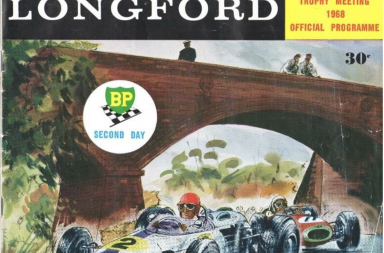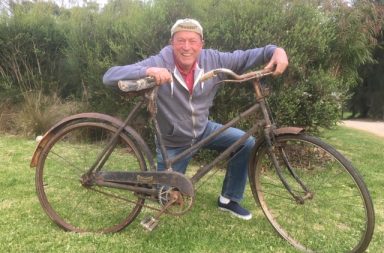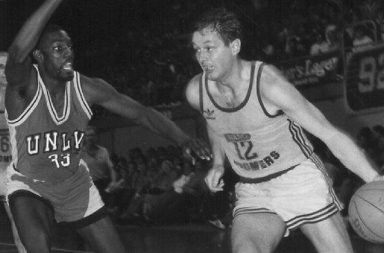Written 2005
You’re reminded of the old admiral from Mary Poppins, still fighting sea battles from his rooftop in Cherry Tree Lane, firing his canon across Regent’s Park and telling all who pass beneath about the storms blowing from across the channel.
“Take care young man – there’s a southerly approaching,” he cries, telescope to eyeball.
‘Dugga’ Beazley is no admiral – he wears a grubby cap with CAPTAIN written across it – but Dugga’s Place is marooned just like the admiral was stranded in polite society.
On the changing landscape of Port Melbourne, where a great working class suburb has sprouted towers of glass and steel, the home of Port Melbourne’s oldest fishing family is a beacon.
It’s hard to know whether to laugh at Dugga’s place or to ring the National Trust and demand a preservation order be placed on it.
In the shadows of so many high rise apartments in a suburb where wharfies lived in weatherboard cottages, Dugga’s is this throwback to the way Port Melbourne used to be.
Port Melbourne’s oldest fishing family is a standout in the changing face of the suburb.
Shanties have been bulldozed, watering holes turned into trendy bars, real estate values have multiplied, and the old salts of Port Melbourne have either moved out or gone to that great dock in the sky.
“There used to be kids everywhere in this street – playing cricket till dark,” Dugga recalls.
“The people coming to live here, they say hello, but it’s not the same as it was.”
Dugga’s digs are a reminder of how Port used to be.
For the past four and a half months, the hull of an old 8m fishing boat has sat on the footpath out front, while Dugga and his son David have restored it in their spare time.
The owner didn’t have the cash to pay for the work, so the Beazleys did the job for the cost of materials only.
Dugga still does love jobs for mates, and Dugga has lots of mates.
Besides, he couldn’t stand back and let the bloke take the 70 year-old boat out on the Bay when he knew it was unsafe and needed urgent repairs.
There’s always a boat on the side of Dow Street outside Dugga’s, and one or two boats inside his gate.
The sign FRESH FISH beckons potential customers, but the sign is unnecessary.
Most of his customers have been coming for decades, and probably bought fish from Dugga’s dad.
Every morning around 2.30 or 3am, Dugga and David, 36, go out onto the Bay, catch a load of fish, then bring them back about 8.30am to be sold.
Most mornings there’s a queue of 20 or 30 buyers by 9am, and Dugga’s wife Frances and daughter Melissa are flat out for two or three hours serving the regulars.
The snapper, calamari, whiting, flathead, pike and flounders are definitely fresh – just as they were when they were caught.
The customers can gut and clean their own.
“We’re done when we bring the fish in,” says Dugga.
“We’ve worked eight hours and we don’t feel like filleting – besides, our customers like them still kickin’.”
Dugga’s a fourth generation Port Melbourne fisherman, the one that didn’t get away.
He remembers when Dow St was full of fishermen, or families who relied on the boats for their tucker.
Now a seven-storey building stares down on Dugga’s place from across the street, and there’s a multi-million dollar development nearer the beachfront, a block away.
Dugga concedes he’s an endangered species, but he’s hard to shift.
A year ago the new seafood regulatory authority, Prime Safe, threatened to close his backyard operation down.
The threat caused a storm amongst the bayside community, and Prime Safe found that Dugga’s customers and friends included lawyers, QCs, business types and celebrities.
Within three days a petition to save Dugga’s backyard fish shop had 200 signatures.
Prime Safe backed down, and Dugga’s lives on.
“I don’t like to get beat,” Dugga, 64, smiles, but he concedes that times are fast passing him by.
When he bought his house for a thousand pounds in the 1950s, the neighbourhood was mostly wharfies.
He sold flathead for four bob a dozen and couta three feet long for two bob.
It was flathead or couta. Nothing else sold.
But, when the migrants came to the working class suburbs, Dugga’s fish business took off.
They wanted calamari, and sardines, and he sold fish in boxes.
“The Greeks and Italians discovered us, and they were wonderful for us.
“Lovely people.”
They made soup from the fish heads and used the bellies to fertilize their gardens.
But now the older Greeks and Italians have sold up and moved out of Port Melbourne.
With the ballooning value of properties, many have gone to retirement homes, or to new suburbs where they can start again without a mortgage.
Still, some return from as far away as Bendigo to buy their fish.
Dugga left Nott Street school at 13, to join his father, Oppy, on the boats.
David left Nott Street school at 14, so he could join Dugga on the Bay.
“I just wanted to be like my old man,” says David.
It was on June 30 two years ago, one of the coldest days on record, that the pair almost lost their lives.
Fishing in Corio Bay from a 5m dinghy (“a tin can,” Dugga calls it), a freak wave flipped the dinghy and flung them into the freezing water.
Both men were under for what seemed an eternity.
At first, David tried to swim for the boat – but it kept going.
Then, they noticed a marker buoy about 500m away.
Both are strong swimmers, and they needed every ounce of their strength, and courage, to make the buoy.
They were in the water, hanging to the buoy, for an hour and a half – before a passing fisherman noticed their empty boat, and started a search.
Asked what he and Dugga said to each other when they feared they would drown, David scoffed: “We just laughed.
“Dad just said he’d be glad when this day was over.”
The two men celebrate each June 30th – “every day is a bonus,” says Dugga.
They go out around 3am in a 12m cabin cruiser from Sty Kilda boat harbour during summer, fishing for flathead, mullet and whiting, but in winter they take a dinghy down to Lara and fish the shallow waters.
They go most mornings, and both love the safe. Dugga hasn’t had a holiday for a decade, and wouldn’t know what to do if he wasn’t fishing or sailing.
David fishes, sails, surfs and swims in the Bay, and – if he goes on holidays – he goes to a beach.
Restoring boats is a sideline for Dugga, “an interest” that he does after he brings the fish in each morning.
Dugga says his dad, Oppy, continued to make nets right up until he died a few years ago at the age of 84.
“That’s the last needle my old man filled,” he says, producing what is regarded as a family heirloom.
When Oppy died, Dugga spread his ashes over a part of the Bay that he knew his dad loved.
Dugga has told David to spread his ashes in the same spot, but Dugga isn’t revealing where that spot is.
“No fisherman reveals his spot,” Dugga smiles.
He says he knows every inch of the Bay, and says he’s seen things that other people can only imagine.
“We see whales and sharks jump out of the water, and porpoises and seals.
“Some days a wave will wash into the boat, and we’ll find half a dozen big garfish in the bottom of the boat.
“We’re privileged people.
“But the best feelin’ of all is when I’m lifting nets just off Port Melbourne, and I see all those poor bastards in their motor cars driving to work.
“They’re glum, and lifeless, and sitting on Beach Rd.
“And there I am – out on the Bay, on a beautiful morning, doing what I love.”



